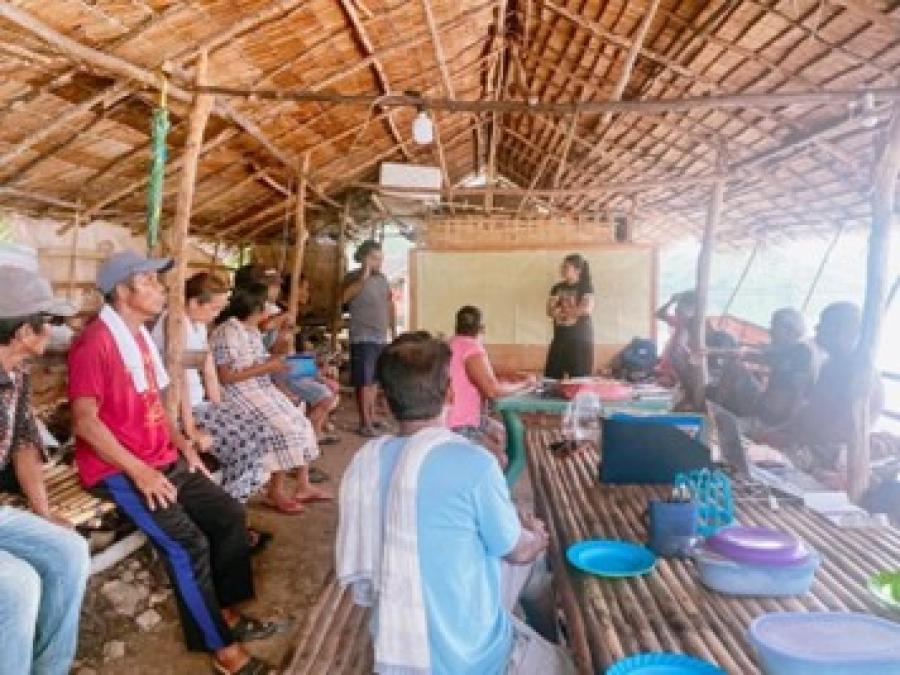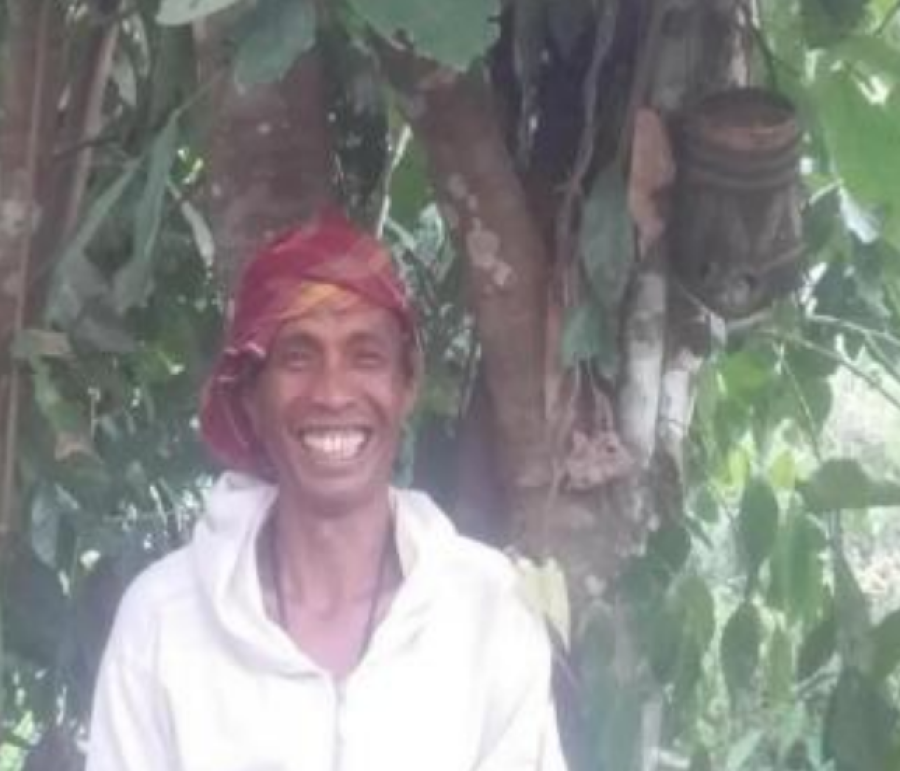Joan Umaming Carling has been an indigenous rights activist in the Philippines for 20 years, and has been associated with the Cordillera Peoples’ Alliance (CPA), an indigenous organization, for more than 12 years. Thanks in part to her work there has been a growing recognition of indigenous issues in the Philippines, but also a growing repression from the government. In the five years since Gloria Arroyo became president, 115 activists and journalists have been killed by armed men who are widely believed to be working for the government. Fifty-one of those killings took place in the first six months of 2006. And the leaders of the CPA, including Carling, have been primary targets of the killings. In June a regional CPA officer was killed, and in July another leader, Doctor Constancio Claver, and his family were attacked and his wife killed. Carling herself is named on a recently discovered government hit list. But none of the violence or threats has dimmed her commitment. Indeed, she is pushing harder than ever. This fall, she was the 2006 Oak Human Rights Fellow at Colby College in Maine, giving lectures and interviews in Boston and Washington. We conducted this interview with her in November.
How did you get started as an activist?
It was during my college years in the early 1980s. It was the time of the Chico Dam struggle in the cordillera. [This was the World Bank-funded Chico River Basin Hydroelectric Dam Project initiated by Ferdinand Marcos.] It was a big issue among the faculty and students, and a lot of them were involved in the struggle. I got really curious about why they were against a dam that I thought was for the benefit of the people. At the invitation of some activists I decided to see for myself the communities affected by the dam. I spent my summer at Bugnay and several other villages. That’s when I resolved to become an indigenous activist.
From then on I became a student leader on the campus, and after college I worked with a labor center and with indigenous communities. In 1990 I became a field staff human rights worker in Kalinga. That was the height of the total-war policy of the government, when they were literally bombing communities in the cordillera, especially those suspected of being strongholds of terrorism. But at the same time these areas are rich in resources that the government wanted to secure for foreign investors. I organized a lot of fact-finding missions and provided documentation and legal services to victims of human rights violations, particularly those who were illegally arrested and detained, and those who lost their houses and property because they were burned to the ground or ransacked by the military. Also the big things like hamletting, where the military ordered them to clear their own villages. That was really a very big eye-opener for me. The way the military operation was done it was like, ‘These people are not entitled to any kind of rights because they are suspected to be enemies or part of the rebel movement.’ That’s very, very savage, very unjust. For me as a human rights advocate and worker it was very difficult to answer the people when they asked why this was happening to them.
In 1994 I headed a human rights commission of the CPA and became a full-time employee. In 1997 I was elected secretary general. The alliance was set up in June 1984, to unite the peoples of the cordillera in a common cause, to recognize the rights of indigenous peoples, particularly land rights and self determination. Since then, CPA has organized a lot of communities through education, seminars, training, mobilization, welfare issues. In fact, CPA was recognized by the Supreme Court as the organization that pioneered consciousness-raising in the Philippines when it made its ruling affirming the constitutionality of indigenous peoples’ rights in the law. That was one of the successes of CPA: In 1987, it successfully lobbied for including in the constitution the principle of the rights of indigenous peoples to their resources and their right to self-determination. This principle was the framework used in the formulation of the Indigenous Peoples’ Rights Act and also the formulation of the Organic Act for the Creation of Autonomous Regions in the Cordillera of Mindanao. Unfortunately the Organic Act was rejected by the public through a referendum because it does not, in substance, recognize self-determination for indigenous peoples, giving them the right to control and manage their resources. It’s a top-down approach where, at the end of the day, it’s the national government that will decide what’s best for the region. That’s why it was rejected by the people.
In regard to the recent killings, the government has said that the people killed were involved in terrorism. Is it your sense that the government is just using that as an excuse to attack CPA leaders?
Definitely. Immediately after the Claver family was ambushed, there was a pronouncement by the armed forces of the Philippines that Claver was attacked because he was a member of the National Democratic Front, which is a rebel group. What kind of statement is that? They’re trying to justify the attack. And since the cordillera indigenous movement is recognized as the strongest indigenous movement in the country, and it’s really hurting the government’s aim of economic liberalization and the entry of foreign investments, it’s not surprising that suddenly they were running after us.
This year we were able to get a hit list of cordillera activists. My name was there, along with several other leaders of the CPA. So we came up with an international action alert, and we got very substantial international support. That made the government, or at least the military, cut back on its threats. So it seemed like the heat was off for the people on the hit list. Then in June our colleague from Kalinga was suddenly killed, and then the ambush of the Claver family. And just last month two of our colleagues at a regional office were followed by men with guns on their way home from the office. These are death squads hired by the military to do these killings. They are paid to do this.
For my part it was very difficult to come to terms with the kind of threat that I was facing when I was followed constantly. My house was watched 24 hours a day, and anyone who came in or out of the house was followed. The lock on my door was destroyed and my car was broken into and my tires were always flat from nails. I had to leave the house and I had to have a bodyguard. But he was not armed. It’s a very stressful situation because I also was putting that person at risk. I find it so selfless of him to take that risk, and yet he cannot defend me because he is not armed; he can only use his body, literally, to cover me in case of an attack.
Does living in that kind of situation make you want to give up activism or to do more of it?
It makes me want to do more. I can get intimidated by this kind of action, but how much worse would it be for ordinary people? Who will speak up for them? If everyone gets intimidated we are simply allowing them to get away with murder and to trample on the rights of people. I don’t think anyone can claim any kind of human dignity if we allow these things to happen.



